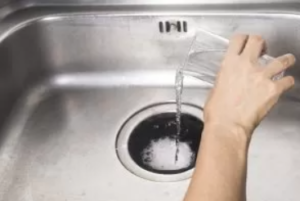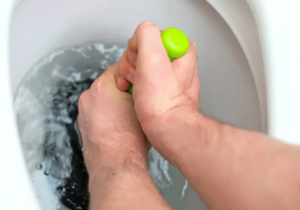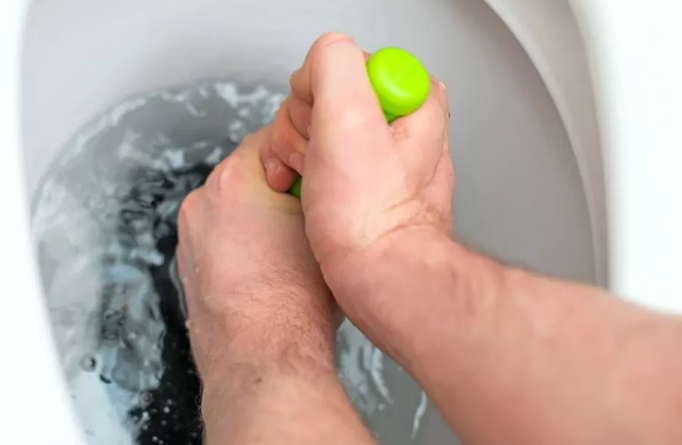Should you pour bleach down the sink?
The short answer to this is no, and you may have discovered this due to causing damage to your pipework or creating scary-smelling chemical reactions. Read on to discover why not, and what to do if you’ve found out the hard way.

Why is it dangerous?
It isn’t the bleach going down the drain that poses a health hazard directly, but what may be lingering in your drain that risks causing a chemical reaction with the bleach.
Bleach can react with other chemicals to create dangerous gases which may be hazardous to health if inhaled. As an article in the Sun explains the trend of pouring neat bleach down your drains has taken to social media courtesy of cleaning accounts and has recently been refuted by experts on TikTok.
Any chemical reactions can also cause damage to the actual pipes, leading to corrosion and leaks. Plastic or PVC pipes are less at risk than their metal counterparts, though you can still do significant damage to the seals on the pipes.
What do I do if I’ve already poured bleach down my drain?
The answer here lies in whether you’ve already caused damage to your pipework. If not, simply swap to a safer alternative and breathe a sigh of relief.
However, if you’ve discovered leaks, you’re going to need to call in the professionals to investigate and potentially repair your pipes. Thankfully, this doesn’t always mean full replacement of pipes, even if they’re corroded. Experts who specialise in sewer pipe lining Wolverhampton, such as wilkinson-env.co.uk/sewer-repairs-drain-lining-concrete-cutting/drain-repairs/drain-repairs-wolverhampton/, can give you a wealth of other options that are more friendly to your purse, and to the environment, than complete drain replacement.

Safe alternatives
Bleach is unlikely to resolve issues such as blockages, so how do you fix these? There’s a multitude of products on offer specialising in drain unblocking, from safe chemicals to long wands that are put down the plughole to pull out hair. These solutions may feel slower, but they’re much more likely to work and less likely to cause damage.


